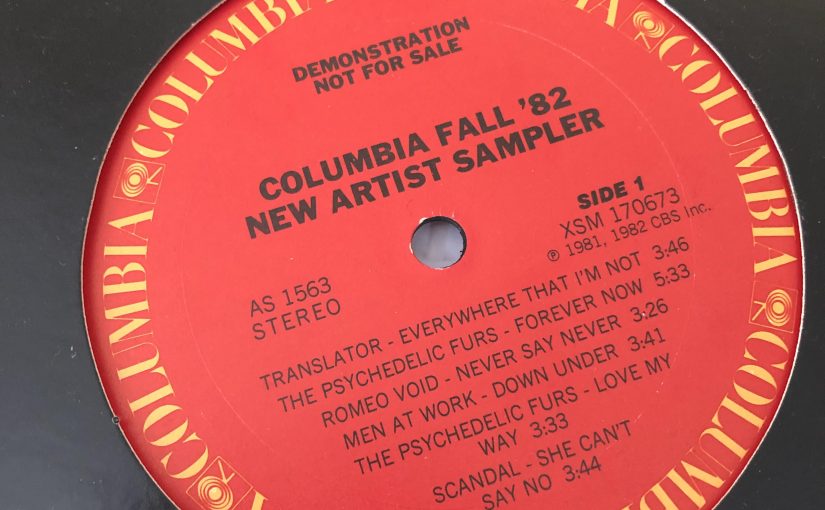If we receive human testimony, the testimony of God is greater; for this is the testimony of God that he has testified to his Son.
Those who believe in the Son of God have the testimony in their hearts. Those who do not believe in God have made him a liar by not believing in the testimony that God has given concerning his Son. And this is the testimony: God gave us eternal life, and this life is in his Son. Whoever has the Son has life; whoever does not have the Son of God does not have life. I write these things to you who believe in the name of the Son of God, so that you may know that you have eternal life.
1 John 5:9-13
My sermon from the 7th Sunday of Easter (May 13, 2018) on 1 John 5:9-13. Listen to the recording at the bottom of the page or read my manuscript below.
****************************
One question I’m often asked when I meet someone for the very first time and I’m in my pastor’s uniform is: “what should I call you?” They, like most of us, get confused by what to call pastors because every flavor of Christianity calls their clergy by different names. I usually respond to this question with “I prefer Pastor Marc but I’ll respond to basically anything…” which is true. Depending on who I’m with, I’ve been called Rev, minister, reverend, pastor, brother, priest, prophet, teacher, elder, and even bishop. Some traditions that only have lay pastors merely call me by my first name or “Mr. Stutzel” if they’re feeling formal. But besides pastor, the number one title someone I don’t know usually uses is… Father. And that was true even before I had kids. I’m honored that many people equate my Lutheran identity with their understanding of what a catholic priest should be. We should celebrate when all of us affirm the leaders in other flavors of Christianity as being legitimate in the vast community that is the body of Christ. But I’ve never really been comfortable being called “Father” because that term is usually restricted to one gender. “Father” narrows who we believe an ordained clergy person could be even though our Lutheran Church has ordained women as pastors for almost 50 years. But I’ll admit I never really spent too much time thinking about the term growing up because it was a term I was always surrounded by. Even though I was lapsed Catholic, my great-grandparents, grandparents, parents, uncles, aunts, and friends always used the term “Father” so it was a phrase that felt very normal to me. It wasn’t until I attended an Episcopal seminary, which is a tradition that calls their pastors priests, that I actually asked the question about what a woman priest might call herself. And it was there when I finally met the few women priests who are called “Mother.”
Now, not every woman priest in the Episcopal Church goes by “Mother.” We should never assume to call a woman with a collar “Mother” without asking first. Because both titles, Mother and Father, are emotionally and spiritually loaded. They come with all sorts of baggage – baggage to us given by how our society describes what mothers and fathers should be and the baggage we carry based on our own experience of our parents, grandparents, and guardians. I, personally, don’t like being called “Father” and I sometimes stumble over the names of clergy who identify in such a way. And so, when I went to seminary, it took time for me to get use to calling certain clergy Mother. But there was one Mother there who embraced and lived into everything that term might mean.
Her name was Mitties (like Kitties but with an M) Dechamplain and she was my preaching professor at seminary. We didn’t call her professor or Rev or minister or pastor. All of us simply called her “Mother Mitties.”
Now, “Mother Mitties” preaching classes weren’t complicated but they were hard. We read and listened to a lot of sermons. We spent time digging into the different styles, formats, and methods to craft this thing called “the sermon.” Some days we would preach in front of all our classmates and receive their feedback right after it happened we. Our sermons were also be recorded on video so we could do that uncomfortable thing of actually watching ourselves, learning how others experience us in the pulpit. One of the more nerve wracking assignments that we did multiple times was when we were given a piece of scripture to preach on ….and we only had five minutes to prepare. None of us in these class could be called, I think, natural preachers. It takes time, effort, and practice to learn how to preach. Yet Mother Mitties’ goal wasn’t to train us to preach in only one kind of way. She knew that there wasn’t one kind of format, one set of words, that all people, everywhere, would respond to in a faithful way. Instead, she wanted each of us to find our voice, to find our personal style of communicating that was authentically and faithfully who we are. She knew that the church needed more than just a bunch of clones that sounded just like she did. God, believe it or not, really does want more than one kind of voice that’s out there sharing God’s story. Mother Mitties wanted all of us to see how God already was molding us into the mouthpieces God wanted us to be. Our lives, our experiences, our questions, and our faith, formed by following Jesus wherever he goes, is how all of us – preachers, seminarians, church goers, adults, and even children, discover how we are testifiers. And it’s through our stories, our storytelling, our testimony, that others finally meet and see Jesus.
Helping others meet and see Jesus…is really what testimony is all about. And it’s this kind of testimony that the church is all about too. This space, right here, where we gather to pray, sing, and experience Jesus’ story, is a testimony to who God is and how much God loves us. But this space, this worship, is a training ground. It’s here, through our confession and forgiveness, where we learn how to name the deep brokenness in our lives and in our world. We gain, in this time together, opportunities to admit our need to be prayed for and how the power of our prayers can refresh, heal, and bring peace to those around us. We discover, through scripture, just how serious God is about living with us right now – not because we’re perfect but because God’s grace is. We sing, and stand in body and in spirit, shaking hands, and move about because faith is a full contact sport – and every bit of your body matters to God. And when we together kneel at the rail to share Jesus’ holy meal, sometimes surrounded by people we don’t know, we see how our unity in Christ overcomes the barriers and differences we create between us. Being honest about who we are; being willing to name just how much we need God; and seeing everything that Jesus has done for us does – we do that every time we worship. And that’s what testimony is. Testimony isn’t about finding a set of magic words with the right amount of thees and thous and other colorful language that makes us sound more faithful than we might actually be. Testimony is simply using the words we already have to tell our story and why Jesus makes a difference. Now, at first, if we’ve never spoken in that way before, will sound and feel incredibly awkward. And that’s okay. Giving testimony takes practice. And you’re gonna believe, more often than not, that the words you share about Jesus sounds almost ridiculous and you can’t imagine why anyone would listen to them. But they will because the words you speak will be the words God has already given you. And when you speak, when you share your faith, you aren’t doing it alone. Because you are, right now, in the Son. You are, right now, journeying with Jesus. You are, right now, following Jesus even when if it feels like Jesus is far away. And you are, right now, authentically and faithfully, loved. This is the testimony. This is your testimony. And this is a testimony that all of us, in the eternal words of Mother Mitties, can “preach [and share] with abandon.”
Amen.
Podcast: Play in new window | Download



